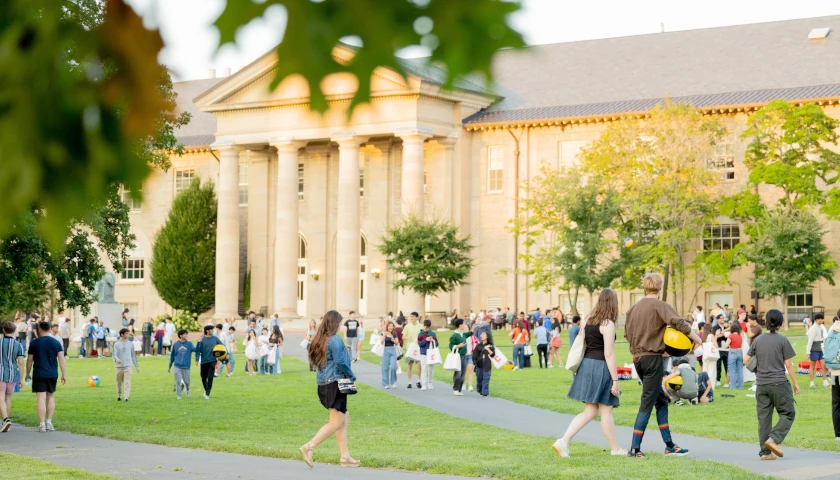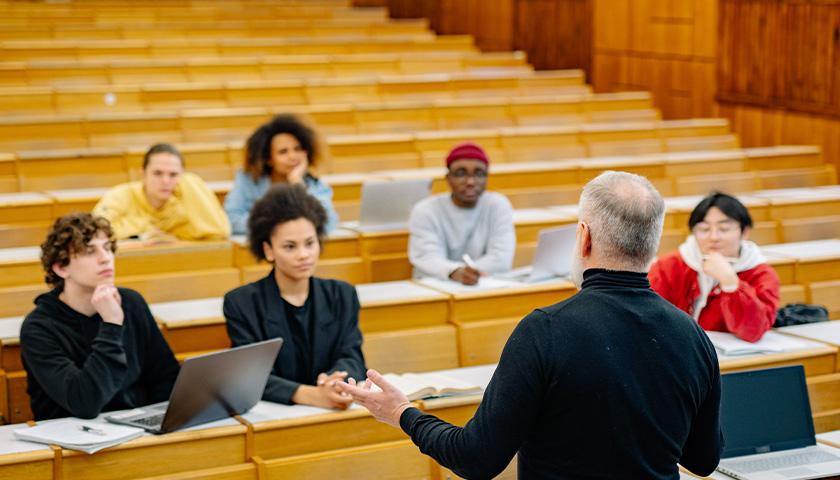by Mark Bauerlein
No matter how much the general public abhors political correctness is higher education, the monitors of the Left continue to find methods of surveillance. Two Villanova professors described the latest development last week in the Wall Street Journal.
It’s a revision to the course evaluation form that professors distribute to students at the end of the semester. Typical questions address workload, assignments, classroom management, grading, and the availability of the professor. But we now have an extra query. I’ve heard it floated before, but this is the first concrete implementation of which I am aware. As political scientist Colleen Sheehan and humanities professor James Matthew Wilson describe it:
students are now being asked heavily politicized questions such as whether the instructor has demonstrated “cultural awareness” or created an “environment free of bias based on individual differences or social identities.
You know what this means. Has the professor implied anything suggesting praise for Western civilization, a biblical conception of marriage and sexuality, American exceptionalism, or economic nationalism? Report him! Did he assign Huckleberry Finn (it has the n-word) or The Scarlet Letter (a woman has a child out of wedlock and is shamed and punished)? Write him up!
Watch your step, professor. Outside of class, students hear a nonstop mantra of diversity, tolerance, and inclusion, along with catechisms against -isms and -phobias. It has primed them to sniff out discrimination in its subtlest forms whenever it is aimed at historically disadvantaged identities. Now, with the sensitivity questions added to the evaluation form, the classroom is another setting of scrutiny, with the professor in the dock.
Course evaluations matter. They can affect tenure, promotion, and salary. A gay student has an acute ear for heteronormativity. A woman who has been sexually assaulted may react strongly to a novel with misogynistic personae even if the professor promotes a critical attitude toward them. Professors at Villanova now must take hypersensitive kids into account when they build a syllabus and craft presentations. They don’t want trouble; they dread a note from the dean. Why take risks? Just drop Huck Finn and pick A Connecticut Yankee. Skip The Scarlet Letter and go with “The Minister’s Black Veil.”
This is how soft totalitarianism works. Sheehan and Wilson have bravely raised their voices in protest. They are admirable educators, and their objections put to shame colleagues who stay silent.
But they make a mistake in their op-ed. At one point they say, “However well-intentioned, the new assessment of faculty ‘sensitivity’ and ‘bias’ will harm Villanova’s mission to provide a liberal education.”
This is too charitable. After witnessing dozens of cases of leftist students, professors, and administrators enforcing political correctness with relentless zeal, let us stop granting them the courtesy of assuming they possess good intentions. As we have seen the professors grow more left-wing, not less, since the academic culture wars broke out 30 years ago. Let’s recognize that when they talked about diversity, they didn’t mean it.
In this case, in empowering students to police the professors, let’s be clear that the real intention of the diversiphiles and bias monitors is, precisely, to “harm Villanova’s mission to provide a liberal education.” Political correctness and liberal education are mutually contradictory. When one goes up, the other goes down.
Here we see diversity and tolerance once more serving the ends of one political outlook. They sound neutral and fair-minded, but they have advanced the causes of progressivism nearly every time. Marx explained long ago that bourgeois society thrived by throwing an apolitical cloak over wholly political tools. The campus Left knows exactly what it is doing.
– – –






Don’t automatically assume good intentions from right-wing student groups either. Judge all individually.